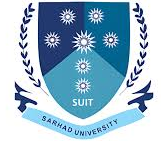IMPACT OF HARVESTING DIVERSITY BELIEFS AND CULTIVATING WORKFORCE DIVERSITY BENEFITS DIMENSIONS OF LEADERSHIP ON THE ORGANIZATIONAL PERFORMANCE IN ORGANIZATIONS IN PAKISTAN
DOI:
https://doi.org/10.31529/2024/1/6Keywords:
Diversity, Leadership, Harvesting, Beliefs, Cultivating, Organizational performanceAbstract
This research examines the connections among the dimensions of the harvesting workforce diversity belief and cultivating workforce diversity benefits dimensions of leadership and organizational performance in highly gender-diverse organizations in Pakistan. Constructs of the study were measured with the help of the scale of Leroy et al., (2021), and the assessment involved the sample of 500 employees from universities and HEIs in Pakistan. The data collection process was conducted among the university employees. The analysis of data was carried out with PLS-SEM using SmartPLS software version 3. The outcomes of this study signify that within the higher education sector in Pakistan, the distinct dimensions of leadership of harvesting workforce diversity beliefs and cultivating diversity benefits dimensions of leadership exert a positive and noteworthy influence on organizational performance. Findings strongly support the notion that implementing effective workforce diversity leadership dimension of the harvesting workforce diversity beliefs and the cultivating workforce diversity benefits dimensions of leadership can significantly enhance organizational performance. The outcomes robustly affirm the idea that the efficacy of leadership dimensions, including harvesting workforce diversity beliefs and cultivating workforce diversity benefits dimensions of leadership is pivotal in augmenting organizational performance.
Downloads
Published
Issue
Section
License

This work is licensed under a Creative Commons Attribution 4.0 International License.
Submission of an original manuscript to the Journal will be taken to mean that it represents original work not previously published, that it is not being considered elsewhere for publication. And if accepted for publication, it will be published in print and online and it will not be published elsewhere.
The journal main policy reflects in its stance that the publication of scholarly research is exclusively meant to disseminate knowledge and not-for-purposes.
Copyright Statment
Sarhad Journal of Management Sciences is published by Sarhad University of Science and Information Technology Peshawar. This copyright statement entails that all contents (including text, tables, graphs, images, or any materials that is part and parcel of a research article submitted to the journal) belong to/ property of the person who owned it prior to submission this journal. Publication of the submitted article will not affect the ownership of copyright of the subject materials. SJMS and its users benefit from a general licence over all content submitted under a Creative Commons CC-BY licence over all content. However, content which is not part of the submitted article, is the property of SJMS. In a nutshell, the combination of all content on the SJMS website, the look and feel of the website, is the property of Sarhad University of Science and Information Technology Peshawar.
As an author or contributor, you grant permission to others to reproduce your articles, including any graphics and third-party materials supplied by you, in accordance with the SJMS Terms and Conditions. The licence granted to third parties over all contents of each article, including third-party elements, is a Creative Commons Attribution ("CC BY") licence. The current version is CC-BY, version 4.0 (http://creativecommons.org/licenses/by/4.0/), and the licence will automatically be updated as and when updated by the Creative Commons organisation.
You may include a requirement to reproduce copyright notices but you may not restrict the right to reproduce the entire article, including third-party graphics. This means that you must obtain any necessary third-party consents and permissions to reproduce third-party materials in your articles submitted to SJMS.
Copyright Statement updated September 13, 2022.




